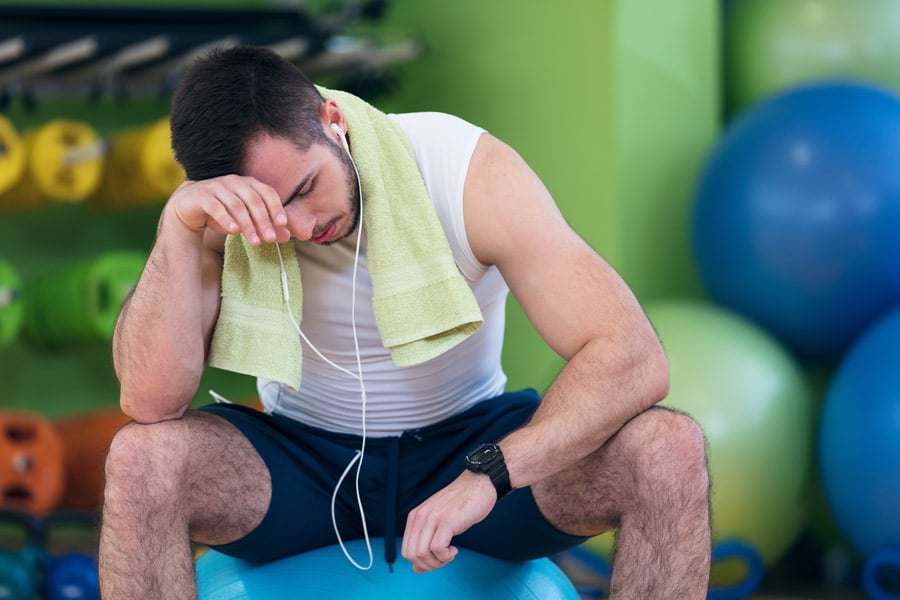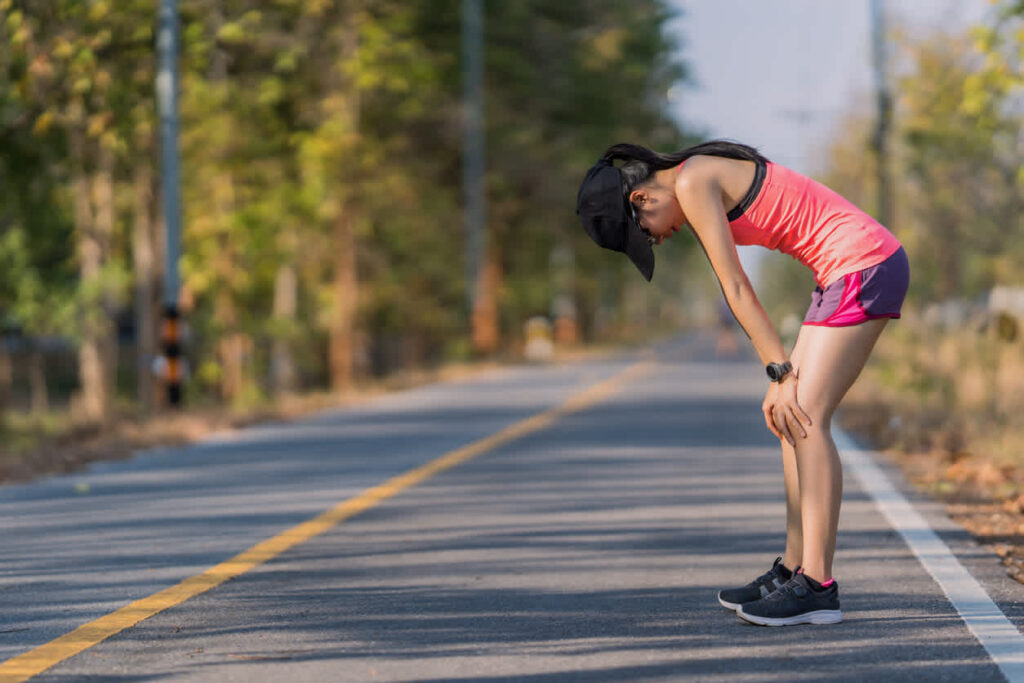
Body pains are feelings of ache or soreness all over your body. They can affect productivity and your overall quality of life.
The cause of body pain is basically inflammation (swelling) or muscle tension. If you’re experiencing body pains, your muscles may feel weak, sore, tired, or hard to move.
Body pains could most commonly accompany a fever or cold, but having them without fever can occur for multiple reasons.
Below are some of the more common causes of body pains & treatment options:
Stress

Psychological stress can have physical manifestations, from headaches to jaw pain to lower back pain.
When you feel stress or anxiety, your body releases adrenaline (a chemical that gives you a quick burst of energy when the brain perceives danger), known as the fight-or-flight response.
Fight-or-flight causes your heart to beat faster and your muscles to tense. The muscle tension, especially with persistent stress, can cause body aches.
Chronic stress can amp up inflammation, causing muscle breakdown, pain, and fatigue, among other symptoms
Dehydration

Dehydration is when you don’t have enough fluids in your body.
It can occur because you aren’t drinking enough or your body is getting rid of fluid too fast. Your body may lose fluid too quickly due to vomiting or diarrhea, excessive sweating or urination or malnutrition.
Your body needs water for most of its functions. So, dehydration can cause some surprising symptoms and cause you to feel bad.
It can make your heart work extra hard to push blood out to the rest of the body.
Since water is an important component of muscle tissue, dehydration leads to body aches.
It can also make it more difficult for the body to regulate temperature, causing chills.
Lack of Sleep

Sleep deprivation lead to inflammation or make inflammatory responses worse.
It can also cause physical symptoms that can contribute to body aches and chills, such as:
- Fatigue
- Weakness
- Muscle tension
- Pain
- Altered immune system
- Hormone imbalance
Obesity

Being overweight causes undue stress and strain on a person’s joints and muscles. This causes pain, so they become more sedentary.
Becoming more sedentary causes them to gain more weight, which leads to more pain. It’s a nasty cycle!
Obese patients are more likely to develop arthritis, especially in their knees.
Researchers have said that a mere ten pound weight gain can put the additional force of 30-40 pounds on your knees.
Once a person has been diagnosed with osteoarthritis of the knee, managing their weight becomes the most important key to managing arthritis pain.
Vitamin D & Calcium Deficiency

A low blood calcium level, can happen when you don’t have enough calcium in your diet and vitamin D in your body from sunshine or your diet.
Your bones and muscles need calcium and vitamin D to stay healthy.
Low Vitamin D levels can lead to bone & muscle pain and weakness.
Over-Exercising

Trying a new type of exercise (or even just working a muscle group you’ve ignored for a while) can make you feel sore.
That muscle soreness, you feel a day or two after a hard workout, is the result of small tears in your tissues.
This results in inflammation, which causes that can’t-sit-down-properly feeling in your legs after you’ve done one too many squats.
Over-using one body part

When you repeatedly use just one part of your body, whether while working out or typing at work, a more focused body ache and concentrated pain can take the form of a repetitive motion injury
Doing the same motion repeatedly can cause muscles, ligaments, and tendons to become swollen and inflamed, which causes the ache.
Chronic Fatigue Syndrome

In a similar way to a person who does not get enough sleep, someone with Chronic Fatigue Syndrome may experience muscular aches in addition to insomnia, exhaustion, and weakness.
Arthritis

Arthritis occurs when a person’s joints become inflamed. Arthritis can result from wear and tear on the body or may be a result of an autoimmune condition that causes the immune system to attack the healthy tissues that line the joints.
Pain and achiness are common symptoms of arthritis.
Auto immune disorders

Various autoimmune disorders can cause body aches.
These include rheumatoid arthritis and multiple sclerosis.
They can affect many types of tissues and nearly any organ in your body.
They may cause a variety of symptoms including pain, tiredness (fatigue), rashes, nausea, headaches, dizziness and more.
Fluid Retention
When the body retains fluid, swelling and inflammation may develop, resulting in general muscular aches and pains.
A person may also experience sharp, localized pains and cramps. Conditions that can lead to fluid retention include thyroid problems, severe malnutrition, kidney disease and problems with lymphatic drainage
Diet & Food
Certain kinds of foods are known to cause or aggravate inflammatory responses and chronic pain. You may be doing yourself more harm than good if you regularly consume:
- Heavily processed foods that include lots of sugar and/or trans fats (including cookies, donuts, and margarine). These are foods which are low in nutrients & high in salt and fat.
- Potatoes, tomatoes, eggplant, and other members of the nightshade family
- Caffeinated foods and drinks
- White bread or other highly-processed carbs
- Alcohol
- Red meats such as steak, beef, or ham
These foods can make you hurt in many different ways. Sugar and artificial sweeteners can raise both your insulin levels and your pain sensitivity. Caffeine and tomatoes both raise your body’s acidity levels and promote inflammatory pain.
Lorem ipsum dolor sit amet, consectetur adipiscing elit. Ut elit tellus, luctus nec ullamcorper mattis, pulvinar dapibus leo.
Chronic Conditions
While this is not an exhaustive list, examples of chronic conditions that could cause body aches and chills without a fever include:
1. Fibromyalgia
2. Diabetes
3. Pancreatitis
4. Liver disease
5. Hypothyroidism (affects how the body regulates temperature)
6. Kidney disease
7. Cardiovascular disease
8. Osteoarthritis
A person should see a doctor if they experience persistent pain that does not improve with home remedies.
How to deal with body aches?
Stress Management & Relaxation

Stress management techniques are a great option for dealing with muscle aches caused by stress and anxiety. Stress management techniques, such as deep breathing exercises, can calm and relax the body and mind, decreasing stress.
You can try simple deep breathing by inhaling deeply through the nose, holding your breath for a few seconds, and exhaling slowly through the mouth.
Or, you can try the 4-7-8 breathing technique as follows:
– Take a deep breath in through your nose for four seconds.
– Hold your breath for seven seconds.
– Exhale through your mouth for eight seconds.
– Repeat several times.
Making time for things you enjoy is also an effective way of reducing stress.
Exercise

Exercise is an integral part of the rehabilitation of patients suffering a variety of chronic musculoskeletal conditions such as lower back pain. Regular physical activity is recommended for treatment of chronic pain and its effectiveness has been established in trials for people with a variety of pain conditions.
Exercise not only reduces pain perception, but also has effects on mental health, such as mood elevation and reduction of stress and depression, which are often associated with chronic pain conditions.
A combination of cardio, relaxation, stretching, and strength exercises may be done for this purpose.
Walking: 30 minutes of walking 3 to 5 times per week can help increase strength, endurance, and heart health.
Stretching:
If you have chronic pain in your low back or neck, stretching can relieve tension and stiffness.
Stretching before you work out can help muscles move more effectively. Doing stretches regularly will aid in uniform blood circulation in the body.
This will strengthen the body physically and aid in the release of natural painkillers such as endorphins
Strengthening exercises:
Building strength is important for stabilizing the joints and preventing future injuries.
For people living with chronic pain, adequate core strength is especially important.
It helps you maintain proper posture and balance and reduces the risk of injuries that could lead to more pain.
Gentle exercises like stretching, pilates, yoga, or walking can help reduce muscle aches, increase blood flow to the body, and decrease stress. However, it’s important not to overdo it, as overly strenuous exercise can cause muscle strain and body aches.
Diet

Diet also plays a role in recovery, especially eating foods with anti inflammatory properties.
Olive oil, green leafy vegetables, walnuts, flaxseeds, fatty fish like salmon and tuna and fruits (especially berries) which have anti-inflammatory properties that help reduce muscle soreness. Try working these healthy foods into your diet to help alleviate pain.
Also make sure you meet your daily protein intake by including eggs, lean meat, soya, Tofu, cottage cheese in your diet.
Sleep Well

Research shows that the immune system and sleep are closely connected.
Sleep strengthens the body’s defense system.
When the body is fighting infection, it craves more sleep.
The problem is that when you are sick, other symptoms often make it hard to sleep soundly.
Try to rest as much as possible — it will relax your muscles and speed up the healing process.
Staying Hydrated

Water is essential to your body’s normal functioning and its ability to fight infection.
If dehydration is the culprit, symptoms typically resolve once you consume enough fluids.
Keep a bottle or glass of water close by and drink regularly.
Apart from water, consume clear broths, herbal teas or electrolyte drinks. Soups are a great way to stay hydrated, especially if you are struggling to eat solid foods.
Ginger tea is a good choice as it can help decrease inflammation..
Supplements

Omega 3 (fish oil) fatty acids: Omega-3 fatty acids are essential in reducing muscle fatigue and tiredness by reducing inflammation in the body.
Vitamin D: Low levels of Vitamin D may lead to chronic pain due to development of conditions like rheumatoid arthritis. Vitamin D is highly recommended for addressing tiredness & lack of energy. When you take it as a supplement, it could help your treatments work better.
Vitamin B12: Vitamin B12 is a vital nutrient that plays a significant role in energy metabolism and helps the body convert the food we eat into glucose, providing energy.
Creatine: Creatine is an amino acid frequently included in pre-workout supplements and energy drinks due to its ability to boost energy levels. It is particularly beneficial for individuals engaged in intense workouts.
Iron: Having adequate levels of iron is essential for maintaining our energy levels. Insufficient levels of iron can hinder the ability of our red blood cells to carry oxygen effectively, leading to persistent fatigue and tiredness.
Folic Acid: Another beneficial vitamin that helps combat tiredness and fatigue. It produces healthy red blood cells that transport oxygen throughout the body.
Magnesium: Is crucial in maintaining our energy levels, particularly during intense physical activity
A natural supplement is turmeric: A chemical in turmeric called curcumin blocks certain proteins that can cause inflammation. Over time, it can help joints ache less and help you move better.
Weight Management

If you have joint pain tied to your weight, you might wonder what it would take to ease the discomfort.
According to a new University of Michigan study, the answer is losing about 10 percent of body weight.
At that threshold, researchers found, pain reductions can spread far beyond the joints.
In the study, people who lost 10 percent of their body weight reported less pain as well as improved mood, cognition and energy; compared with those who didn’t shed as many pounds.
Heat Therapy

Heat can loosen muscles and provide relief from body aches.
If you don’t have a severe fever, a warm bath or shower can be relaxing. But avoid making the temperature too hot — keep the water just above lukewarm to maintain your body temperature.
Consider adding Epsom salt to your bathwater for added benefits.
A warm compress, heating pads or blankets can also offer some comfort, but avoid excessive heat